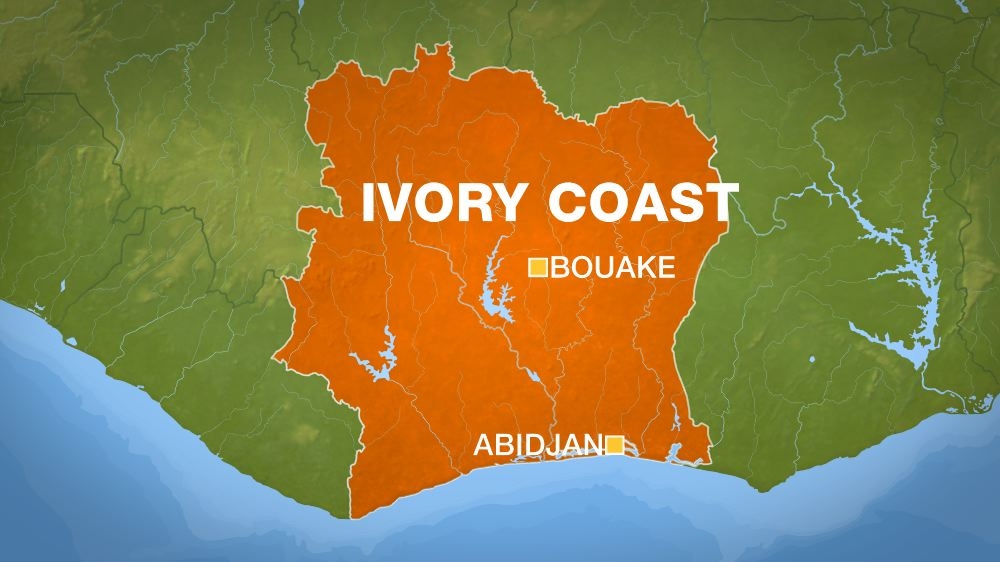Ivory Coast launches military operation to quash mutiny

Ivory Coast has launched a military operation "to re-establish order" after soldiers who staged a three-day mutiny over bonus payments refused the army's demand to disarm.
Advertisement

The mutineers, most of them former rebel fighters who fought to bring President Alassane Ouattara to power, have sealed off Ivory Coast's second-largest city, Bouake, and used gunfire to break up protests against the revolt.
As loyalist soldiers advanced on Bouake on Sunday, the Military Chief of Staff General Sekou Toure issued a statement announcing the new offensive.
"These acts of an extreme seriousness are contrary to the mission of protection assigned to the armed forces," the statement said. "As a result, a military operation is under way to re-establish order."
Six people were wounded by gunfire on Sunday, and one of three protesters shot and wounded on Saturday died of his wounds.
The mutineers said they would not surrender.
"They asked us to lay down our arms and surrender. We refused and demand our money ... We are waiting for them," Sergeant Seydou Kone told the Reuters news agency.
The soldiers' uprising began in Bouake on Friday when a spokesman for the group dropped demands for extra pay promised by the government during negotiations to end a previous mutiny in January.
The 8,400 mutineers received 5m CFA francs ($8,370) each at the time, and were due to get the rest of the sum this month. But the government has struggled to make the payment, with a budget hit by the collapse in the price of cocoa, Ivory Coast's main export.
The defence minister has vowed not to re-negotiate with the renegade troops, and public anger at the mutineers is growing.
Protests against the mutiny took place in Abidjan, the northern city of Korhogo and western cocoa hub of Daola on Saturday.
On Sunday morning, the soldiers used gunfire to break up a march in Bouake's city centre, wounding six people.
"The population rose up, but the mutineers quickly dispersed the march with shots," said Bouake resident Simon Guede. "Everything is closed."

The Ivorian army, which consists of about 22,000 soldiers, includes many former rebels who were integrated into the armed forces after years of conflict.
Ivory Coast was plunged into civil war in 2002 following a failed attempt to oust then-president Laurent Gbagbo.
The revolt sliced the former French colony into the rebel-held north and the government-controlled south and triggered years of unrest, which ended when Gbago was forcibly removed from office in 2011.











